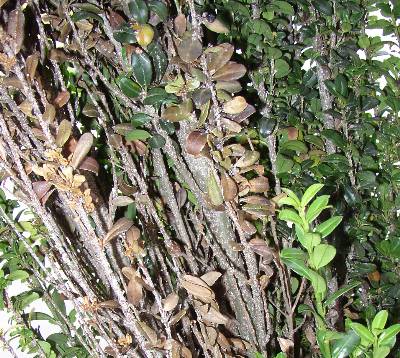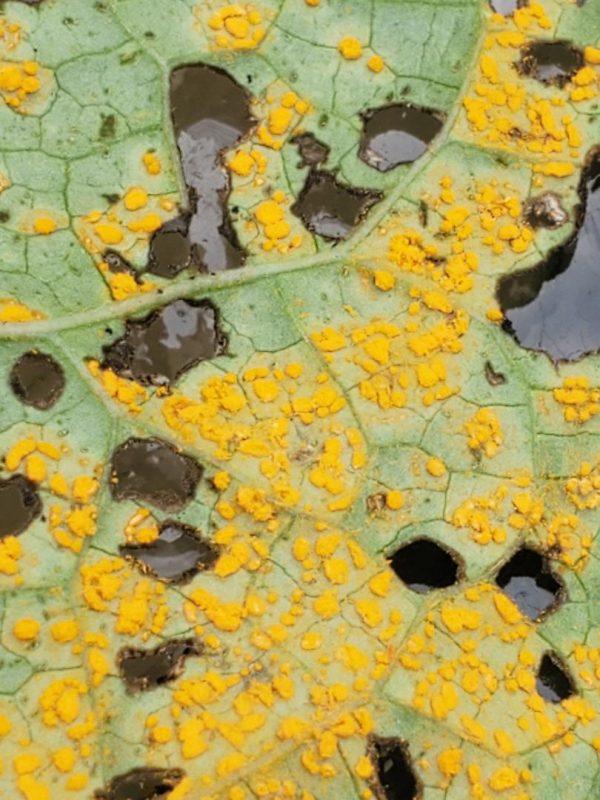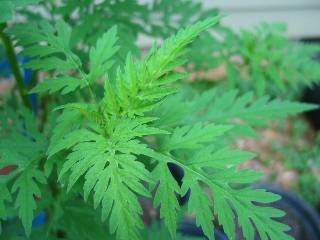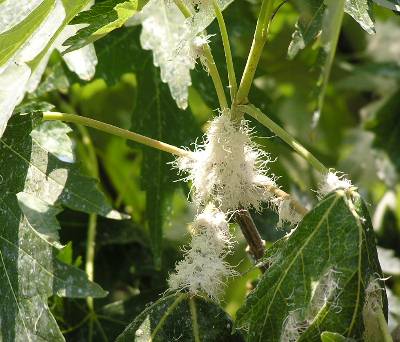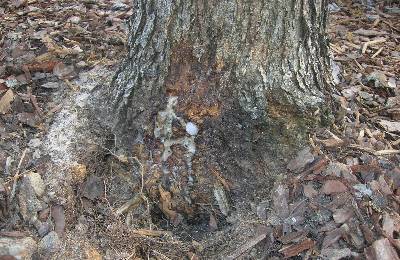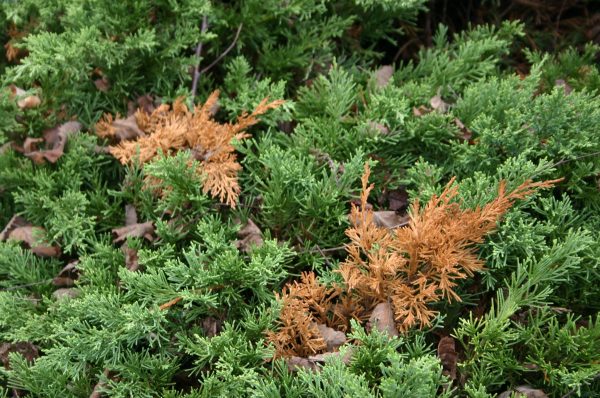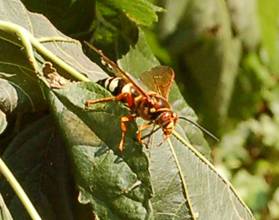Polyphemus Moth – Cocoon
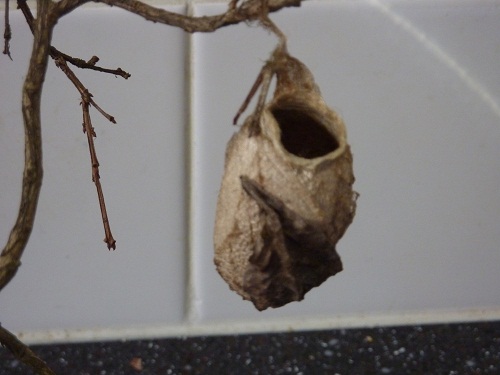
Q: I found this “nest” attached to a branch of a crape myrtle. I thought at first that it was some type of hummingbird nest, but my research doesn’t substantiate that.
A: University of Georgia insect expert Lisa Ames says:
This looks to me like the cocoon of a giant silkworm moth (family Saturniidae), and I’m thinking specifically that this is either a Polyphemus moth (most likely) or a Luna moth. The Polyphemus moth is the one likely to leave the pupa out in the open attached to a plant. Sometimes they will also spin their cocoons in the leaf litter, which is where the Luna moth spins its cocoon also. So since this was left on the tree it is most likely a Polyphemus moth (Anthraea polyphemus), and the opening on the top means that the moth has already emerged and flown away.
The caterpillars feed on a wide variety of woody shrubs and trees and generally don’t do any damage to a specific tree. The moth is rather large and beautiful with prominent peacock-like eyespots on its hind wings.

polyphemus moth coccoon

polyphemus moth coccoon



